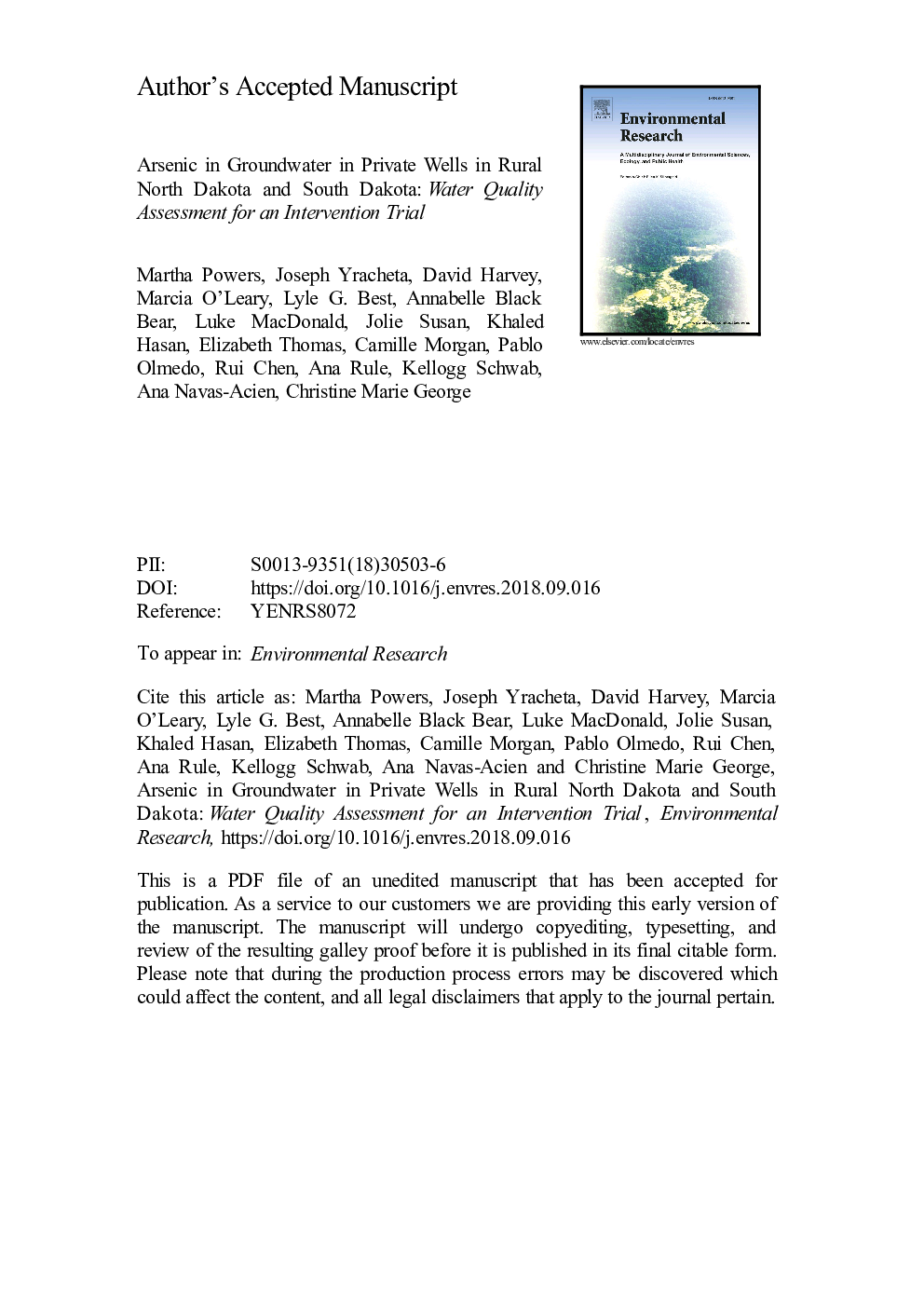| Article ID | Journal | Published Year | Pages | File Type |
|---|---|---|---|---|
| 10223644 | Environmental Research | 2019 | 20 Pages |
Abstract
Elevated exposure to arsenic disproportionately affects populations relying on private well water in the United States (US). This includes many American Indian (AI) communities where naturally occurring arsenic is often above 10â¯Âµg/L, the current US Environmental Protection Agency safety standard. The Strong Heart Water Study is a randomized controlled trial aiming to reduce arsenic exposure to private well water users in AI communities in North Dakota and South Dakota. In preparation for this intervention, 371 households were included in a community water arsenic testing program to identify households with arsenic â¥10â¯Âµg/L by inductively coupled plasma mass spectrometry (ICP-MS). Arsenic â¥10â¯Âµg/L was found in 97/371 (26.1%) households; median water arsenic concentration was 6.3â¯Âµg/L, ranging from <1-198â¯Âµg/L. Silica was identified as a water quality parameter that could impact the efficacy of arsenic removal devices to be installed. A low-range field rapid arsenic testing kit evaluated in a small number of households was found to have low accuracy; therefore, not an option for the screening of affected households in this setting. In a pilot study of the effectiveness of a point-of-use adsorptive media water filtration device for arsenic removal, all devices installed removed arsenic below 1â¯Âµg/L at both installation and 9 months post-installation. This study identified a relatively high burden of arsenic in AI study communities as well as an effective water filtration device to reduce arsenic in these communities. The long-term efficacy of a community based arsenic mitigation program in reducing arsenic exposure and preventing arsenic related disease is being tested as part of the Strong Heart Water Study.
Keywords
Related Topics
Life Sciences
Environmental Science
Health, Toxicology and Mutagenesis
Authors
Martha Powers, Joseph Yracheta, David Harvey, Marcia O'Leary, Lyle G. Best, Annabelle Black Bear, Luke MacDonald, Jolie Susan, Khaled Hasan, Elizabeth Thomas, Camille Morgan, Pablo Olmedo, Rui Chen, Ana Rule, Kellogg Schwab, Ana Navas-Acien,
